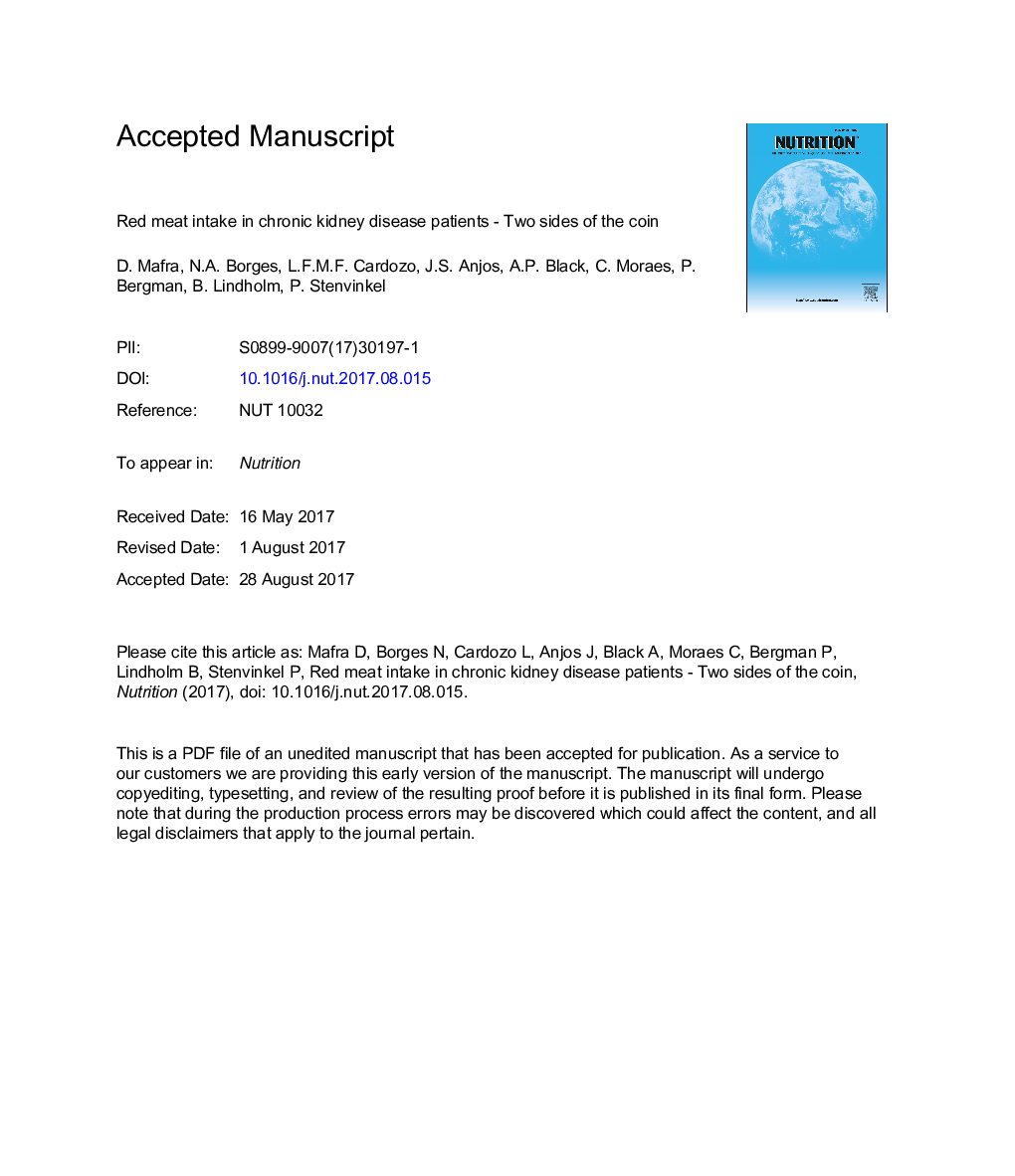| Article ID | Journal | Published Year | Pages | File Type |
|---|---|---|---|---|
| 5656787 | Nutrition | 2018 | 22 Pages |
Abstract
Red meat is an important dietary source of high biological value protein and micronutrients such as vitamins, iron, and zinc that exert many beneficial functions. However, high consumption of animal protein sources, especially red meat, results in an increased intake of saturated fat, cholesterol, iron, and salt, as well as an excessive acid load. Red meat intake may lead to an elevated production of uremic toxins by the gut microbiota, such as trimethylamine n-oxide (TMAO), indoxyl sulfate, and p-cresyl sulfate. These uremic toxins are associated with increased risk for cardiovascular (CV) mortality. Limiting the intake of red meat in patients with chronic kidney disease (CKD) thus may be a good strategy to reduce CV risk, and may slow the progression of kidney disease. In the present review, we discuss the role of red meat in the diet of patients with CKD. Additionally, we report on a pilot study that focused on the effect of a low-protein diet on TMAO plasma levels in nondialysis CKD patients.
Keywords
Related Topics
Health Sciences
Medicine and Dentistry
Endocrinology, Diabetes and Metabolism
Authors
Denise Ph.D., Natalia A. Ph.D., Ludmila Ferreira Medeiros de Franca Ph.D., Juliana S. M.Sc., Ana Paula M.Sc., Cristiane Ph.D., Peter Ph.D., Bengt Ph.D., Peter Ph.D.,
